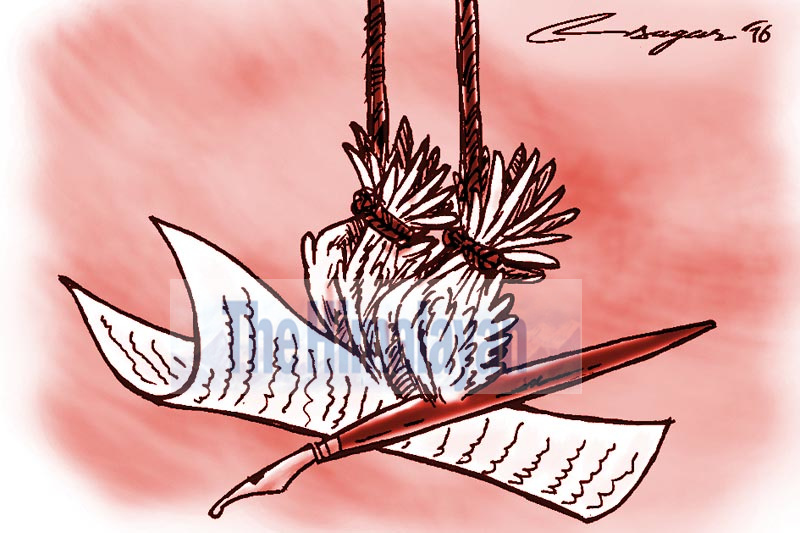AI urges Parliament to amend draconian bills
Provisions of IT Bill could be abused to stifle critical opinion, satire and public comments
Kathmandu, January 16
Amnesty International has said Information Technology Bill, Media Council Bill and Mass Communication Bill will curtail freedom of expression and Nepal’s Parliament must amend these bills in conformity with international instruments.
IT Bill will empower the government to arbitrarily censor online content, including social media, and punish offenders with up to five years’ imprisonment and a fine of Rs 1.5 million.
The IT Bill is one of the three proposed new legislation that uses vague and broad clauses to unduly restrict the right to freedom of expression, said AI in a press statement.
“Nepal was once envied by people across the region for its openness towards critical views and opinions. That reputation is now at risk as the government continues to curtail people’s expression through writing and singing. The IT Bill and other legislation must be amended and brought into line with international law and standards to guarantee people’s right to freedom of expression,” said Biraj Patnaik, South Asia Director of Amnesty International.
AI said in 2019, laws like the Electronic Transactions Act-2006, were used to arbitrarily detain journalists for publishing stories which criticised the government or others who posted critical comments online.
In April, journalist Arjun Giri was charged under the act for reporting on financial fraud. In June, comedian Pranesh Gautam was arrested for posting a satirical film review on YouTube. In October, musical artists Durgesh Thapa and Samir Ghishing, popularly known as VTEN, were arrested for the contents of their songs.
Section 94 of the IT Bill vaguely criminalises people, who post content on social media if it is deemed to be against “national unity, self-respect, national interest and relationship between federal units.”
AI said other provisions of the IT Bill, which are open to wide interpretation, could also be abused to stifle critical opinion, satire, public dialogue, and public comments. For example, the bill prohibits ‘teasing,’ ‘deceiving,’ ‘demotivating’ and ‘demeaning.’
Section 115 of the bill envisions ‘Information Technology Court’ in each seven provinces around the country, with the mandate to deal with all issues under the bill, including criminal liability.
As the bill authorises the government to appoint members of the court bypassing the judicial council, this poses serious concern on the influence of the executive body over these courts, independence of the judiciary and fair trails in such courts, AI said in its release.
Under international human rights law, states are permitted to limit the right to freedom of expression, but these limitations must be for legitimate reason, as stipulated in the International Covenant on Civil and Political Rights to which Nepal is a party, AI said in its release.
“If passed in its current form, the provisions in the IT Bill further risk creating a chilling effect, and will ultimately give rise to censorship of online content and people will no longer be able to share their feelings or debate issues freely and without fear of repression,” said Patnaik.
AI said under Section 18 of the Media Council Bill, the government will have the power to impose fine of up to one million rupees if a journalist is found guilty of libel or defamation, which is also punishable under the criminal code.
AI said Mass Communication Bill, also drafted in 2019, includes provision of even harsher sentencing and fines to journalists with up to 15 years of imprisonment if found guilty of publishing or b r o a d c a s t i n g c o n t e n t s deemed to be against sovereignty, territorial integrity and national unity, as per section 59 of the bill.






